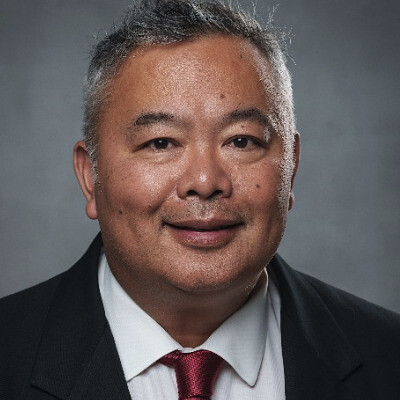Disaster Day Interprofessional Simulation: A Special Report on an IPE Disaster Day Event Simulation Analysis at Florida Gulf Coast University
This seminar showcases Florida Gulf Coast University’s (FGCU) Disaster Day Simulation, a dynamic, interprofessional education (IPE) experience designed to immerse healthcare students in the realities of disaster response. Using a large-scale, scenario-based simulation involving multiple disciplines—including nursing, public health, social work, physician assistant studies, and emergency management—participants respond to a simulated mass-casualty event requiring coordinated crisis intervention. This event, held annually, mimics real-world unpredictability while emphasizing teamwork, critical thinking, and rapid decision-making under pressure.
Aligned with the Summit theme of “Innovating Together: Building Bridges Across Disciplines,” this session highlights how simulation-based learning can foster cross-disciplinary understanding, enhance collaborative practice, and prepare future professionals to operate effectively in high-stakes environments. By bringing together students from varied healthcare and public service backgrounds, FGCU’s Disaster Day cultivates mutual respect, shared goals, and joint problem-solving—hallmarks of successful interprofessional collaboration.
Learning Objectives:
After attending this session, the learner will be able to describe the structure and implementation of an interprofessional disaster simulation in an academic setting.
After attending this session, the learner will be able to articulate the value of simulation in fostering interprofessional collaboration and communication.
After attending this session, the learner will be able to identify strategies to adapt or replicate similar simulations within their own institutions or professional settings.
Immediately Actionable Skills and Practice Knowledge: Participants will leave with practical tools to plan, design, and execute disaster simulations, including:
Guidelines for scenario development and role assignments across disciplines.
Templates for interprofessional debriefing and assessment.
Tips for securing institutional support and logistical coordination.
They will also gain insights into integrating national competencies (e.g., IPEC, Core Competencies for Disaster Medicine and Public Health) into immersive simulation design.
Active Learning Strategies: This interactive seminar will leverage:
Collaborative Jamboard exercises where participants co-design a mini-disaster scenario, identifying key learning outcomes and roles.
Live polling and chat-based reflection prompts to gauge audience perspectives on disaster preparedness and IPE challenges.
Role-assignment breakout discussions (optional) in which attendees briefly assume student or facilitator roles to explore decision-making pathways.
Debrief mapping activity, where attendees examine how to structure effective post-simulation reflections to enhance learning.
These strategies ensure engagement across both in-person and virtual participants, allowing for flexible yet meaningful interaction.
Fulfillment of Priority Criteria: This seminar directly supports priority areas by:
Advancing interprofessional education through a model that integrates multiple disciplines in a high-impact, practical setting.
Enhancing workforce readiness by preparing students to navigate disaster scenarios that mirror real-world complexity.
Promoting equity and inclusion as the simulation often incorporates vulnerable populations, encouraging learners to consider the needs of marginalized groups during crises.
Demonstrating scalability and innovation, offering a replicable framework adaptable to different institutional sizes, resources, and regional needs.
Ultimately, this session empowers educators and program developers to bridge academic silos and foster collaborative resilience through experiential learning.
In support of improving patient care, this activity is planned and implemented by The National Center for Interprofessional Practice and Education Office of Interprofessional Continuing Professional Development (National Center OICPD). The National Center OICPD is accredited by the Accreditation Council for Continuing Medical Education (ACCME), the Accreditation Council for Pharmacy Education (ACPE), and the American Nurses Credentialing Center (ANCC) to provide continuing education for the healthcare team.
As a Jointly Accredited Provider, the National Center is approved to offer social work continuing education by the Association of Social Work Boards (ASWB) Approved Continuing Education (ACE) program. Organizations, not individual courses, are approved under this program. State and provincial regulatory boards have the final authority to determine whether an individual course may be accepted for continuing education credit. The National Center maintains responsibility for this course. Social workers completing this course receive continuing education credits.
The National Center OICPD (JA#: 4008105) is approved by the Board of Certification, Inc. to provide continuing education to Athletic Trainers (ATs).
This activity was planned by and for the healthcare team, and learners will receive Interprofessional Continuing Education (IPCE) credit for learning and change.


Physicians: The National Center for Interprofessional Practice and Education designates this live activity for AMA PRA Category 1 Credits™. Physicians should only claim credit commensurate with their participation.
Physician Assistants: The American Academy of Physician Assistants (AAPA) accepts credit from organizations accredited by the ACCME.
Nurses: Participants will be awarded contact hours of credit for attendance at this workshop.
Nurse Practitioners: The American Academy of Nurse Practitioners Certification Program (AANPCP) accepts credit from organizations accredited by the ACCME and ANCC.
Pharmacists and Pharmacy Technicians: This activity is approved for contact hours.
Athletic Trainers: This program is eligible for Category A hours/CEUs. ATs should claim only those hours actually spent in the educational program.
Social Workers: As a Jointly Accredited Organization, the National Center is approved to offer social work continuing education by the Association of Social Work Boards (ASWB) Approved Continuing Education (ACE) program. Organizations, not individual courses, are approved under this program. State and provincial regulatory boards have the final authority to determine whether an individual course may be accepted for continuing education credit. The National Center maintains responsibility for this course. Social workers completing this course receive continuing education credits.
IPCE: This activity was planned by and for the healthcare team, and learners will receive Interprofessional Continuing Education (IPCE) credits for learning and change.
Learners can claim CE credit by completing the Daily Evaluation.

